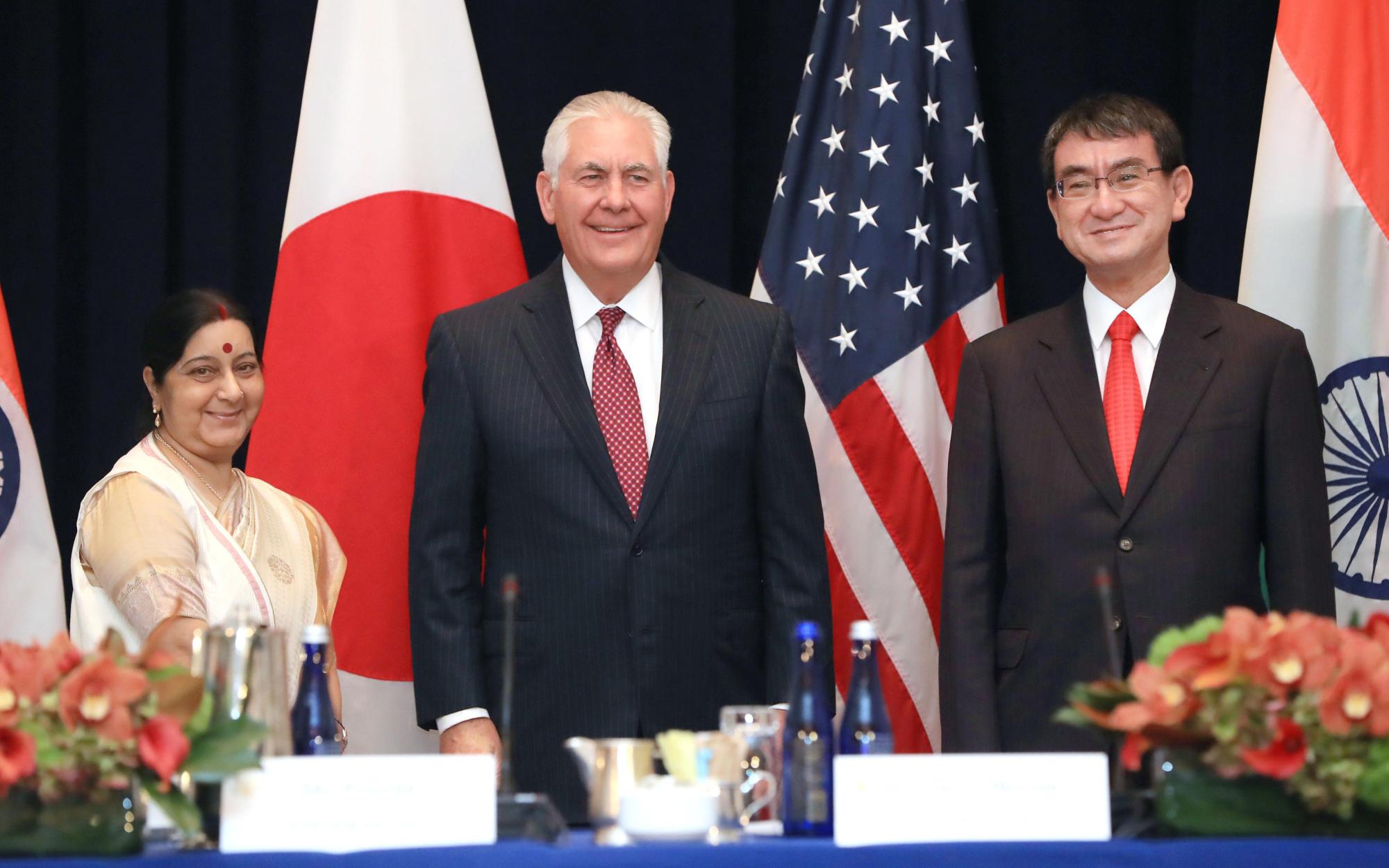
With China on mind, Japan pushes quad dialogue with India, US & Australia
With China’s President Xi Jinping promising to making China a major global power at the country’s twice-in-a-decade Party Congress, Japanese Foreign Minister Taro Kono has said that his country would soon propose a top-level security dialogue with the US, India and Australia on board.
Speaking to The Nikkei daily, he said that the “idea is for the leaders of the four nations to promote free trade and defence cooperation across a stretch of ocean from the South China Sea, across the Indian Ocean and all the way to Africa”. “We are in an era when Japan has to exert itself diplomatically by drawing a big strategic picture,” Mr. Kono said.
The daily reported that the foreign minister said that he had already had a brief discussion on the same with US Secretary of State Rex Tillerson and Australian Foreign Minister Julie Bishop on the sidelines of a foreign ministers meet in Manila two months back.
“Free and open seas will benefit all countries, including China and its Belt and Road Initiative,” he said, adding that dismantling North Korea’s missile programme will also focus prominently in the talks. Recently, expressing the US’s evolving view on China’s ambitious project, Mr. Tillerson had expressed concerns over China’s predatory economics and its not-so-responsible rise.
Read More
